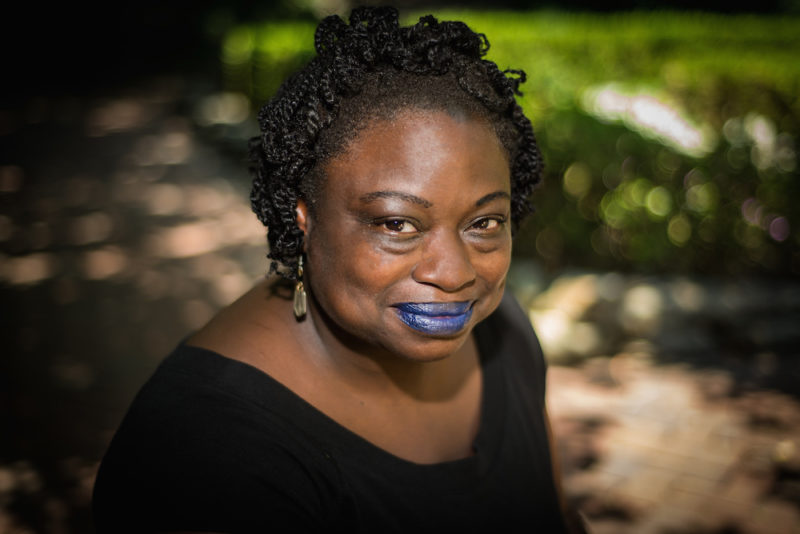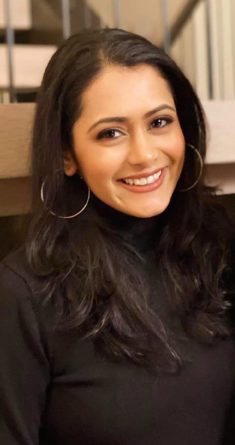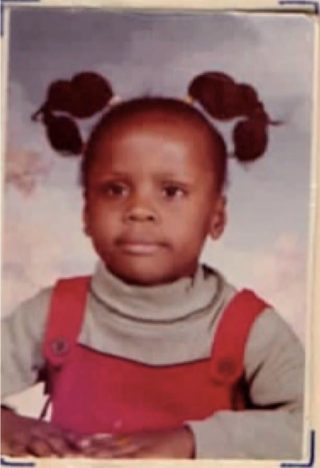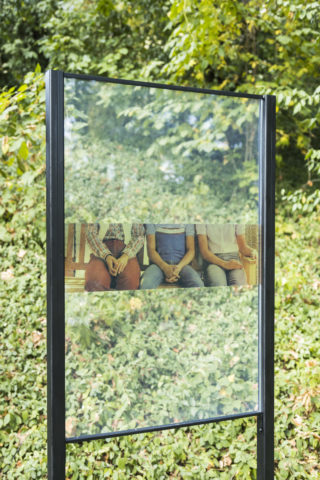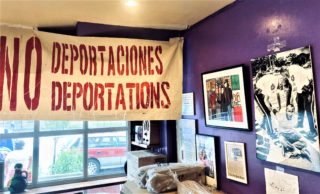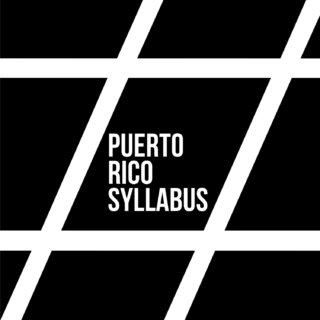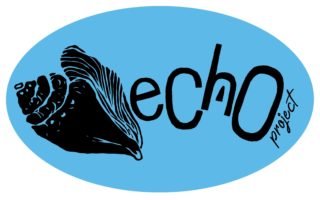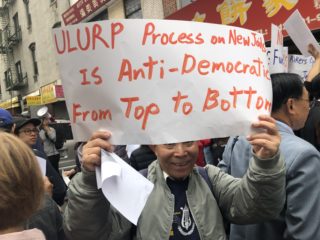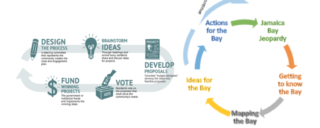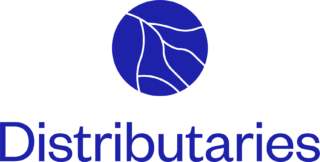
Via this series of interviews, Distributaries seeks to sketch out the contours of the public humanities ecosystem—the centers, institutes and initiatives advancing undertaking the work of the public humanities—at the City University of New York. Apart from sharing the specific work these programs and centers do, we also wish to offer up their visions of the “public humanities” as a field and the rich ways in which the ethos of this term is realized.
For this interview, I was able to sit down (virtually) with Dr. Rosamond King, Director of the Ethyle R. Wolfe Institute for the Humanities at Brooklyn College. We spoke about her goals for the institute, the mission undergirding their work, as well as Dr. King’s own public practice—as scholar, teacher, leader and poet.
–Queenie Sukhadia
Queenie Sukhadia (QS): How do you understand the public humanities and what do you think this term offers?
Rosamond King (RK): I think that the public humanities is a well-meaning term in the sense that it reminds us that the humanities should be for everyone. It’s one of those terms that I wish we didn’t need. I wish we lived in a world in which we understood that everyone should have access to the humanities and that everyone should feel comfortable reading theory and criticism, because I really believe that theory is simply a way of understanding the world, of attending to the structures of the world. If we talk to our grandmothers, they all have theories; we talk to our aunties and uncles, they too have theories. So I think that the public humanities is a useful term to remind us that the humanities is for everyone, and I hope that we’re all moving in that direction.
If we talk to our grandmothers, they all have theories; we talk to our aunties and uncles, they too have theories.
QS: How do your intersecting identities of scholar, artist, and creative writer influence your public humanities practices and commitments and your understanding of the public humanities?
RK: As someone who functions in different worlds, one of the things I find extremely useful is that I’m used to moving among different groups of people and communicating in different registers. I teach in a university—and I’m very proud of that work—but I also often perform in front of community organizations or work with activists and interview them. And, as such, I use different languages, but I also use the same language as much as possible. I’m not interested in trying to dumb down what I’m doing for different communities. I think that what we do as scholars is actually not as complicated as some of us think it is, and we are actually very capable or should be very capable of communicating what it is that we do to different communities. I think that’s where my work as an artist and activist, as well as a scholar and teacher, has benefited me.
QS: I feel like language functions as a big impediment to how people approach theory and scholarship. If you don’t have specialized training, it might feel impenetrable. Do you think that your writing practice—your scholarly writing practice—is different from how you write poetry or does it build off how you write poetry?
RK: Actually, for me, my practice of writing scholarship—theoretical and critical texts—is not that different, really, because my audience for most of my work has been my mother. And my mother is a very smart woman, but she doesn’t have a PhD. I’m fortunate enough to say that my mother has read everything I’ve written from the time I was three years old until the time that I published my first scholarly book, Island Bodies. And the only thing she said she had trouble understanding was when I was asked to rewrite the first chapter of my dissertation to include more traditional theory. I think that’s telling. I’m very proud of the fact that a lot of people have read Island Bodies in book clubs; they have taught it to undergraduates. I think it’s really possible to write theoretical and critical texts and do that kind of deep engagement and analysis without using archaic and extremely elitist forms of writing.
I understand that for many people, that is what makes theory theory. I know that there are many people who would think that my work is not as theoretical as some others’ work because it’s more understandable. And that’s simply a choice that I’ve decided to make. I understand that I would be published by different presses, perhaps, if I wrote in a different way, but I would rather write in a more accessible manner and have my work be read by a broader audience. One of the things that’s been very gratifying for me is that I have had my scholarship used in a court case in Guyana to help overturn a law against crossdressing that criminalized Trans people. I think it’s partly because my work was accessible to people who weren’t in my field that enabled my work to travel in all of these different ways.
People say that the humanities don’t matter, but when we make it possible for people to enter into our work, then you show them how it matters in their lives.
QS: Absolutely! It’s amazing to see how impactful scholarship can be when it’s made more publicly accessible. This also makes me think about how poetry matters in people’s lives. How do you understand poetry functioning as a public utterance capable of contributing to the public good? Do you think it has a special resonance for educators and/or institute leaders as they’re moving through the world?
RK: I hope that it does. I’m laughing because even some people who I know and who are my friends—who are professors—are themselves a little bit afraid of poetry still and feel that it’s an elitist art form, and that it’s more difficult to teach, or they’re worried about bringing it into the classroom. But I do think that one of the reasons poetry resonates is because it accesses emotion in a way that scholarship often distances itself from. Poetry can delve into empathy and connection in ways that scholarship sometimes doesn’t. And I think we had a great example of how poetry can reach people through the poem that Amanda Gorman read at the inauguration. I know that some people didn’t like the poem and some people didn’t particularly care for the style, but the truth is that that poem reached millions of people. And Gorman’s book is going to be published in its first edition in a million copies. I think if a third of those people, if a tenth of those people, pick up another book of poetry, then all of us are benefiting. If people are Googling Black poets because of this poet, then all of us are winning.
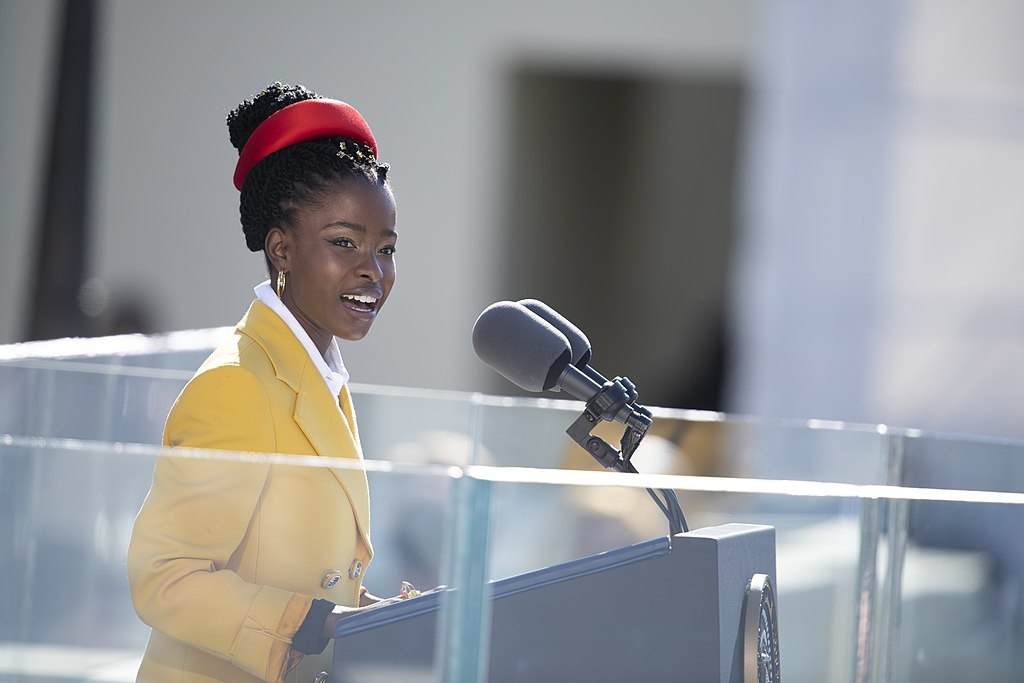
So I do think that the wonderful thing about the humanities is that we have so many different registers—we have the theoretical register, the critical register, the public essay register, and of course we have the artistic register through poetry and playwriting and fiction. We have the ability to communicate ideas through all of these different routes.
QS: Speaking of students who may be more comfortable working in registers that aren’t the traditional theoretical forms: How do you think we can make space institutionally, in academic programs, for these students, so that they can write in registers that best represents their work and thoughts?
RK: I think that’s a great question. I think one of the things that we need to do is determine: What is the purpose of the language? What is the purpose of the piece that’s being created? I often teach the research essay, which is the second part of freshman English at Brooklyn College. In that class, I say that I study language. I’m really passionate about language. Language is like chemistry. You can’t say that there are good chemicals and there are bad chemicals. You can do bad things with chemicals and put them together to make a bomb. But hydrogen by itself is not bad. So I’m not here to say that any language that anyone speaks is a bad language. However, if you’re writing a cover letter, you’re trying to get a job in a traditional field, then it’s useful for you to know standard English—not to the exclusion of all the other languages that you might speak with your friends or with your family, but for the purposes of getting a job in a traditional field.
Now, in academia, I think that we’ve been limiting ourselves too much. When we look at writers such as Audre Lorde—she is now taught as a theoretical writer, but at the time, she was not seen as a theoretical writer. In fact, most of what we teach as her essays are actually speeches. But we find them so incredibly moving in part because they’re so accessible. Even Stuart Hall, for example. I always remember the quote where he says that everybody immigrates to get away from their mother. That’s something that I remember because it’s colloquial, it’s commonplace, it’s something that is accessible. And so, I think we should remember that we can write things in complicated ways, and sometimes complicated thoughts have to use complicated language, but not always.
I think we can remember that vernacular languages are also complex. If we look again at the languages of our grandmothers and aunties and uncles, those have incredible metaphors built into them. Those languages describe ways of understanding the world and cosmologies and mythologies that are incredibly complex and rich. We need to include those alongside, say, Greek mythology (which was vernacular at the time!).
QS: Yes! Thank you for that. Can you speak a little bit about the Ethyle R. Wolfe Institute for the Humanities? How does it situate itself vis-à-vis the public humanities in terms of what it does?
RK: The Ethyle R. Wolfe Institute for the Humanities at Brooklyn College is kind of unique. Some of our larger and more private universities have a number of endowed institutes, but Brooklyn College only has a couple. I’m very proud to be the current Director of the institute because our mission is to buttress and support excellence in research, teaching, and publication in interdisciplinary ways that are grounded in the humanities. The vast majority of our events are actually open to the public.
Brooklyn College is at the last stop on the 2 and 5 trains. We don’t attract the same large numbers of people that some of our colleagues in more accessible places do, but our events are open. And one of the benefits to this really difficult time of working remotely is that, by putting our events online, we’ve had people from other states, even other countries, tune in to our events. We’re trying to take advantage of this moment to make our events more public.
QS: My next question really taps into the idea of the “public” in public humanities. Who are the publics you work for/with—both personally and as the Director of the Wolfe Institute?
RK: Well, one of the things that I’m fond of quoting is the original mission of the City University of New York, which is to provide a quality education to the whole people of New York City. And to me, the public is that whole people of New York City. Now, that said, I think that it’s really true that if you target marginalized communities, then not only are those marginalized communities more likely to attend your events, but it also makes your events more accessible to non-marginalized communities. So, for instance, when we make sure that Trans people don’t have difficulty coming to our campuses, if their gender presentation doesn’t match their ID, when we make sure that the buildings in which we have our events are accessible to disabled people, that also means that those events are more accessible to people who are undocumented, who might not have an ID, to people who are elderly or who are temporarily disabled. I think that when we think about the whole public, it also means that we have to think about how we bring in the most marginalized of the public.
QS: Thank you for bringing that point back home. I also want to ask you more specifically about CUNY as a public university. What do you think is the role of a public university in doing the work of the public humanities? Do you think the public humanities’ responsibilities shift in any significant way in the climate of austerity in which we are currently operating and, in fact, have been shifting for a while?
RK: Those are two very important questions. As a public institution in New York City, I do think that we have a unique role. We’re in one of the most important cities in the country, economically, politically, culturally, and we’re surrounded by institutions that have millions and, at least in one case, a billion-dollar endowment—the exact opposite of what we have. And yet we are able to do amazing things.
One of the reasons that I like teaching at Brooklyn College is that many of my colleagues teach there not because we couldn’t get a job somewhere else, but because we’re actually dedicated to public education. You may have heard the phrase that Brooklyn College is the poor man’s Harvard. And one of my students hearing that phrase said: “Actually, Harvard is the rich man’s Brooklyn College.” And I loved that idea! The idea that we—Brooklyn College—are the standard. We have incredible people, not only at Brooklyn College, but at the Graduate Center, at Baruch, at Hunter, at City, at Queens. I think it’s wonderful that students who don’t have access to an incredibly expensive university can still get an amazing education and have access to all of the best aspects of the humanities here at the City University of New York. In terms of austerity, it’s something that we’ve been struggling under for years. Again, I think the quality of the education at CUNY speaks to the dedication of our faculty, and of our students and staff as well, to make sure that, even under duress, under difficult circumstances, we are able to present a quality education. In some ways, it’s a detriment to us, because I think some of the people who determine where money goes look at us and say: “Well, they seem to be doing alright, and they don’t give us additional funds, but we’re in desperate need of those funds.”
“Actually, Harvard is the rich man’s Brooklyn College.”
I work in a place where the water shut off and the bathrooms didn’t work—where it took three years to have a light bulb replaced. These are not circumstances in which people should be expected to work and go to school. So, I really call on our lawmakers to give CUNY the amount of funding, the kind of support they give to the SUNY institutions throughout our state, to really honor the students who are working two and three jobs to attend our institutions and get that education that’s going to take them into the life of the mind, into the middle class, into a new job, or just personal fulfillment—whatever their personal goals are. I think that we owe that to our students. We owe that to our community because these educated people spread knowledge through their communities, and it benefits the entire city, the state of New York and the country.
QS: That’s so true. What do you think are the skills, dispositions and values those within the university need to cultivate in order to do effective public-facing work?
RK: I think that when people are thinking about making their work public, one of the most important things is to know your audience. So if you are speaking to peers—if everybody in the room is a professor—then you can speak a particular way. I think one of the things that sometimes scholars forget is that most of us teach an awful lot, and we code switch in order to teach. Think about that code switching if you’re writing, for instance, for a newspaper or a blog, or if you are speaking to a community organization. We are actually much more capable, as scholars, of speaking to the broad public than we think we are. We can explain what we do to our families. We can explain what we do to our children and our elders. So there’s no reason that we can’t explain what we do to the general public.
We are actually much more capable, as scholars, of speaking to the broad public than we think we are.
QS: Last but not the least: While institutionalization has its own host of problems, there’s something to be said for making public humanities work less ephemeral and dependent solely on individual practitioners. How can the institutes or departments that are starting to do more public-facing work build infrastructures to make this work more enduring?
RK: That’s a wonderful question. It’s people who are now in graduate school or now undergraduates who are going to come up with innovative ways to help us do better at making the public humanities consistently public. That said, I do think that part of what we need to do is remind ourselves that we are part of the public. And that we need to work to make sure that people who have the power to make policy decisions, people who are empowered in government, people who are in power in corporations, respect humanities experts the way that they respect scientific experts.
I worked at a Fortune 500 company. I got to see how important it was to be able to write clearly, in a way such that people would understand you. And that was something that, at the time, was respected in the place in which I worked. I think that when we respect that more and recognize that there’s no such thing as a soft skill—that all skills are incredibly valuable and necessary, no matter what field you’re in—then we will consider the humanities as important to our lives as we consider the sciences and the social sciences.

